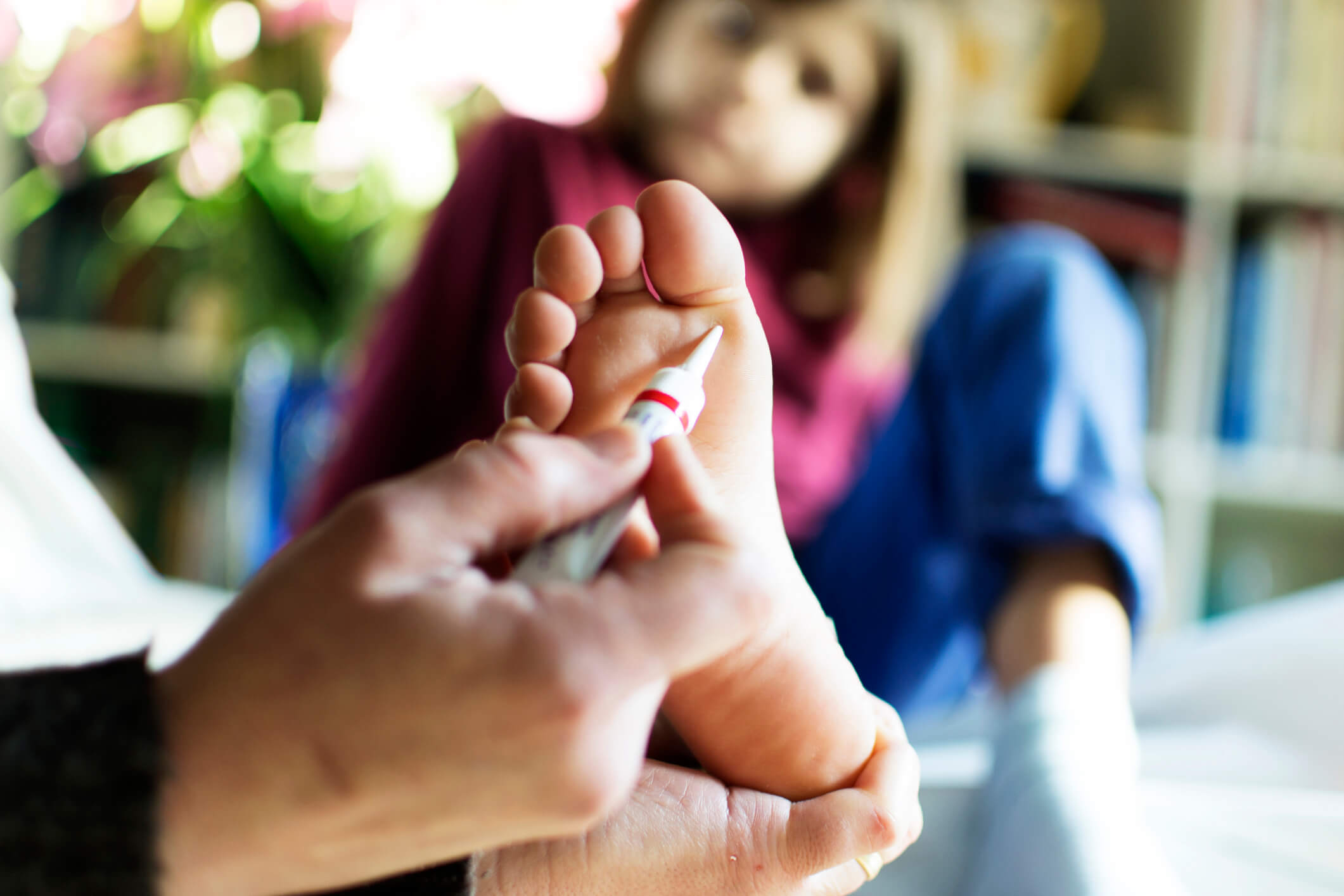-
One of the most common things we see in podiatry practice is plantar warts (verruca pedis) and they tend to have a special icky factor associated with them! Whether it’s due to tales about toads or their association with poor hygiene; warts are thankfully a mostly harmless and very treatable skin condition.
Before we get to the bottom of how to fix these lumpy lesions, let’s have a look at how they get there in the first place.
Going viral: What causes warts?
Warts are caused by the human papilloma virus (HPV), which has a number of strains. One well known strain is actually the cause of cervical cancer, however this has no connection with skin warts.
Skin warts typically occur when a break in the skin allows HPV to penetrate tissue, resulting in the characteristic warty (verrucous) appearance. Plantar warts are essentially the same as other skin warts, but because of pressure from walking and standing, they grow inwards instead of outwards.
To make things even ickier, the virus can remain dormant for up to 12 months until warts actually appear! This can make it difficult to know exactly where and when the infection was transmitted. But whatever the source, all wart viruses are spread via direct contact.
Common sources of wart virus are public showers, other people that live with you and shared clothing. So take care when walking barefoot in places that you might suspect are unclean and avoid wearing other people’s socks and shoes. Another good idea is to try not to pick at your warts, as you can spread them to other areas of your body. It can result in foot warts ending up on your hands or even your face!
Wart or corn?
To diagnose a plantar wart, appearance is important, but so is a little practice pearl that podiatrists often use to tell the difference between warts and other foot skin lesions like corns. Warts tend to hurt more when they are squeezed, compared to other lesions which tend to hurt more when they are pressed.
Do warts ever go away on their own?
Interestingly, in children we find that most warts require no treatment at all, with 50% of warts spontaneously resolving within 6 months and 90% resolving within 2 years.
However, adult warts can linger for longer, so if you’re an adult with a wart for longer than 6 months or your child has had a wart for more than 2 years, it’s a good idea to have it looked at by your local GP, podiatrist or dermatologist. You should also seek professional advice if you or your child has more than one wart.
Warts-away! How do you treat warts?
Once we know we have a wart on our hands (or feet) that needs treatment, there are a number of options, ranging from over-the-counter preparations from your local pharmacy to specialised formulations. Freezing, surgery, burning and chemical destruction are also options and despite sounding painful, most are actually quick, easy-to-use and seldom cause lasting discomfort.
All treatments work in the same way, removing the wart virus by stimulating an immune response. However, individual immune responses can mean that some people don’t respond to certain wart treatments, so the process can be lengthy. The good news is that most wart treatments are eventually very successful, once the right one is found to match that person’s immune response.
So whether you want to clear your warts because they bother you or because you’re worried about that toad you kissed the other day, rest assured there’s always a way to treat them!
What the wart?

-
What causes bad breath?
Find out how to keep your mouth smelling fresh
-
Signs to look out for when a cold is getting more serious
When you should see a doctor for a cold.
-
The health checks to keep in mind at different stages in your life
Have you had these health checks?
-
Bowel cancer: risks, symptoms, diagnosis and treatment
Learn more about bowel cancer
-
Flu myths debunked
Is 'man flu' real? Can you catch the flu from the flu vaccine? We separate flu facts from flu fictions.
-
Where to get health support in Australia
An Overseas Student Health Cover member’s guide to key health services and when to use them.
Subscribe to receive the best from Live Better every week. Healthy recipes, exercise tips and activities, offers and promotions – everything to help you eat, move and feel better.
By clicking sign up I understand and agree to Medibank's privacy policy






